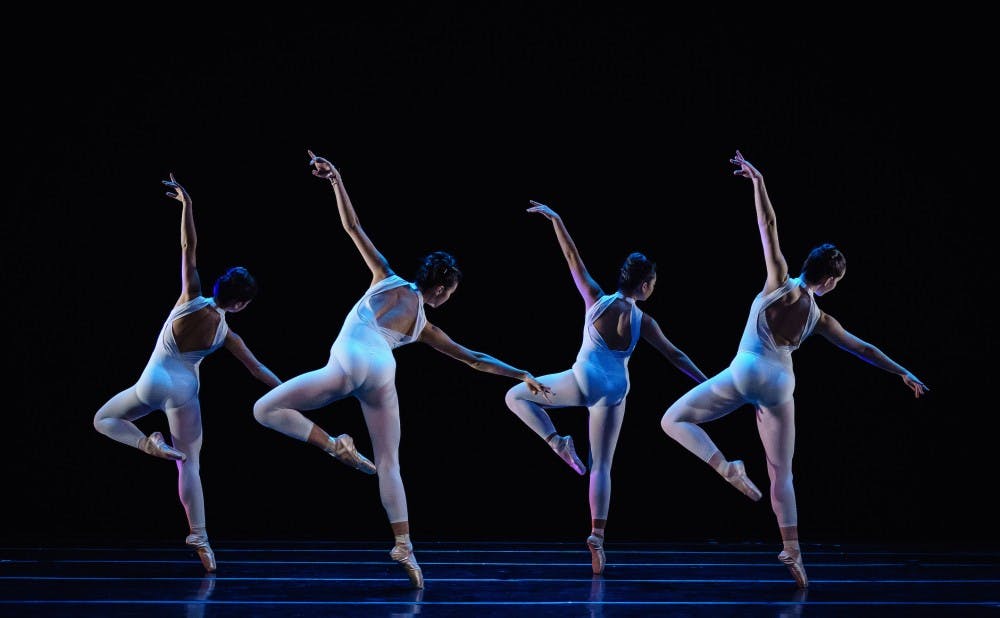Until recently, Duke offered only one Master of Fine Arts program, in experimental and documentary arts. But the desire to create a dance MFA isn't new, said Michael Kliën, associate professor of the practice of dance and the MFA in dance program director.
“There has been a big investment from Duke into the arts, over the last 10 to 15 years, and I think it’s an accumulation of efforts, in a way, to develop these programs,” Kliën said. “And the dance program has expressed desire years ago to do just that and develop an MFA, and bring it into this kind of community which is very exciting. And to be the first amongst peer organizations doing so shows the seriousness of how Duke is committed to the arts.”
Master’s degrees can set you back tens of thousands of dollars, and for those interested in the arts, the return on that investment might not even be significant. As noted by Forbes, the 25 top-paying master’s degrees right now are almost all in STEM fields, and none in dance.
“We are well aware that the employment situation for the arts is precarious,” Kliën said. It’s because of this that the program aims to ideally combine passion, with producing something beneficial to society.
The program website states that the program will endorse dance as a “politically, socially and spiritually transformative force in society.” Instruction will emphasize research focused on socio-political affairs that have the potential to result in tangible contributions to society. The program intends to produce students who think about what they can do to impact their communities.
“We think of it as, ‘Okay, so how can we impact society at large?’” Kliën said. “How can we develop structures for the general good, for the general transformation of society?”
Its full title, “Master of Fine Arts in Dance: Embodied Interdisciplinary Praxis,” hints at the interdisciplinary focus of the program. Students must complete substantial study in a related graduate school discipline, such as gender, sexuality and feminist studies, new media or cultural anthropology.
“It aims to make people understand that we really think about interdisciplinarity and try to bring the artistic practice into society and into the community," Kliën said. "So rather than thinking about the artist as someone who just practices within their own four walls or in their own dance studio."
Classes will be held in the Rubenstein Arts Center, which opened in January 2018. The center includes two state-of-the-art studios, as well as offices for the faculty and staff.
“With the opening of the Rubenstein Arts Center in January 2018, Duke’s Dance Program has a new home and stunning studios," Scott Lindroth, Duke’s vice provost for the arts said, told Duke Arts in 2017. "From this foundation, the MFA in Dance can make the most of the full research resources at Duke.”
Research is such a crucial portion of the program that a research proposal is needed in order to apply. Although applicants are not expected to have a flawless proposal, admissions will need to see a clear idea of the direction the research will take. The proposal needs to demonstrate what Duke can help the student achieve, in terms of providing the right guidance and work conditions.
Although research plays an important role in the program’s goals, Duke does not wish to alienate those with goals of becoming a professional dancer. The program is not intended to detract or delay students from reaching that point. In fact, depending on research interests, the MFA will work toward advancing goals of becoming established artists in the industry.
“We are very confident that everybody will find their own niche, rather than say, ‘Okay, well everybody will become a dancer, or a choreographer,'" Kliën said. "No, out of this cohort there might be one choreographer, there might be one dancer, there might be people who go into academia, there might be people who develop their own companies ... It also requires a certain kind of entrepreneurship and we very much encourage that as well as part of the MFA.”
The dance program will only accept seven students each year, but despite its size, the group will contain a diverse assortment of characters. Kliën said the small number will allow more personal attention for each student. Because each student will have an individual research proposal and project, the curriculum will have to be individually tailored.
“We hope that it will add to a new creative spirit at Duke,” Kliën said. “We really want to shake the world into awareness, through the body of course, and the mind — so through thinking and moving at the same time. And we encourage everybody to spread the word, because the more people know about it, the better it is.”
Duke’s MFA in dance program will start in fall 2019. Applications for the program opened in September 2018 and will remain open until February 2019.
Get The Chronicle straight to your inbox
Sign up for our weekly newsletter. Cancel at any time.

